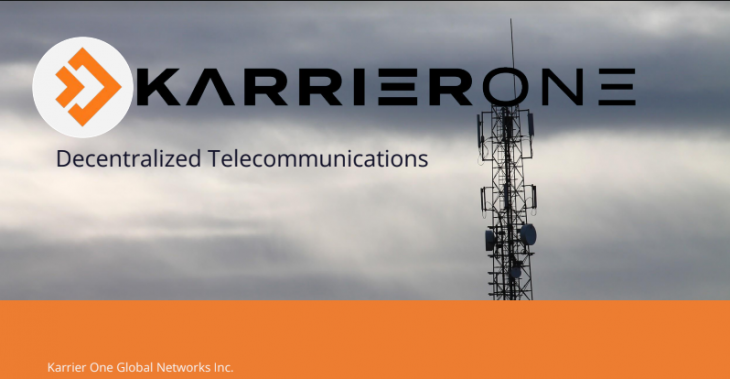
TORONTO – Karrier One Inc., a decentralized wireless network company, announced its launch Wednesday with the close of its first financing round and a satellite connection to 10 4G nodes.
The company’s network will be spread out by people and businesses owning the network equipment – as opposed to a single network operator – who act as micro nodes or hotspots that extend connectivity to other areas. The company said the technology supports traditional handsets, including the iPhone and Samsung devices, and 5G connectivity.
The company, co-founded and headed by Iristel CEO Samer Bishay, said because of its decentralized nature, costs to connect to the network will be lower than buying service from traditional mobile network operators. It will be especially effective in underserved areas, it said.
To incentivize participation in the sprawling network, purchasers of equipment that provides connectivity – also known as the gatekeepers – and the radio spectrum providers will be reimbursed via the blockchain, which also provides the full suite of security and “99.999% true uptime.” Traditional fiat money and crypto tokens will be used as payment.
The more a hotspot is used by others, the company said, the more utility tokens the owner gets, reducing their wireless bills.
“This is disruptive technology at its finest and sure to shake up the Canadian and Global telecom market,” Bishay said in a press release. “We will soon offer wireless connections to millions worldwide in under-served areas, including Indigenous Canadians.”
“As every Canadian customer knows, the lack of real competition within Canada’s telecom industry translates into unreasonably high rates, poor or throttled service, lethargic problem resolution as exemplified by Rogers national outage in July 2022, and, quite frankly, often abysmal customer service,” Bishay added.
The company said it is partnering with competitive local exchange carriers with infrastructure, satellite operators with spectrum, and hardware vendors.
The build-out of the network will be done in phases over the next three years, the company said, with the first step being the deployment of infrastructure with “key business partners” in underserved areas across Canada. The company is setting its sights on other countries, including the U.S. and Kenya, which Iristel expanded into earlier this year.
The concept of a decentralized mobile network is not new. Helium’s The People’s Network, a large blockchain-based peer-to-peer network for internet of things devices, says it has nearly one million hotspots on the crowd-sourced model in North America and Europe.


